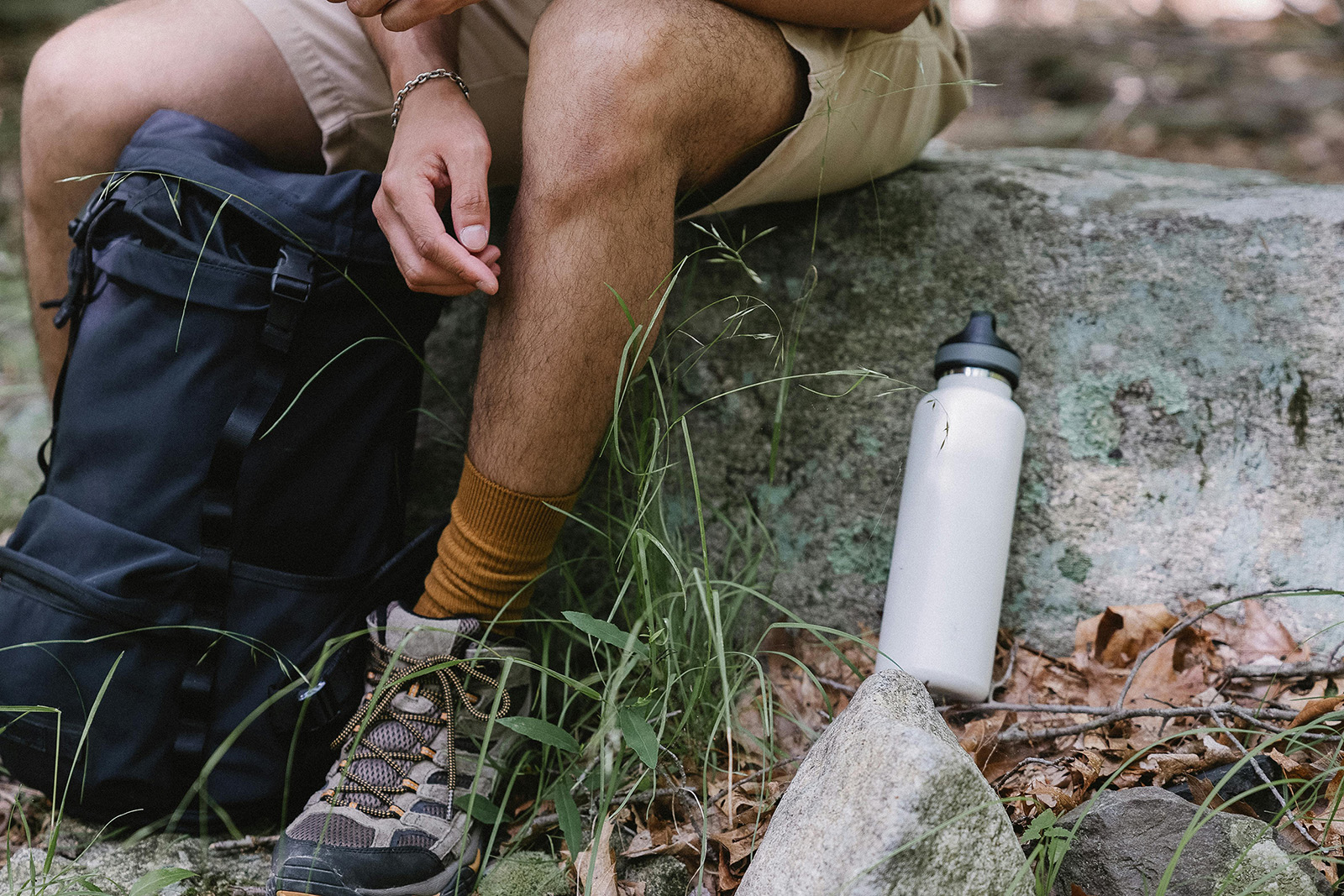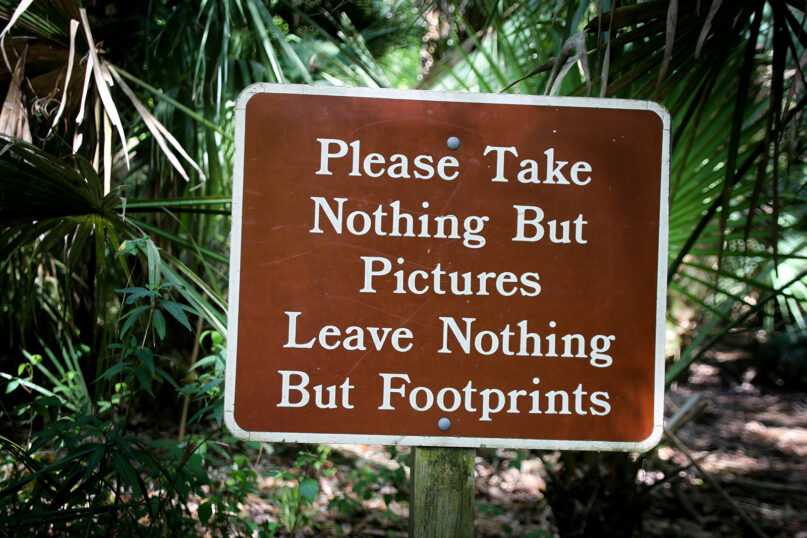
(RNS) — One of the most common ways of dismissing someone is to say: “Take a hike.”
No one told me to do so, but nevertheless, I recently took a hike in the wilds of Whitefish, Montana, where I have been leading services at Glacier Jewish Community for the High Holy Days.
It was a beautiful excursion up to Dollar Lake — a chance to immerse myself in the beauty of God’s creation. I learned that lakes come in many different colors, or to be precise, many shades of blue and green. Over my time here, I have seen that in other ways, too. Sunsets have revealed shades of red and purple I had never seen before. Rabbi Sandy Eisenberg Sasso once wrote that those surprising colors are evidence of God’s paintbrush.
But it is not what I learned on the hike that is important today, but what I learned before it.
At the trailhead there was a sign with a set of terse instructions for the proper behavior of hikers: “Leave No Trace.” It was a reminder to carry out whatever you bring in, to avoid leaving garbage behind.
On the trail, that’s wisdom. But in life? The rules are the opposite.
The great truth of human existence is that you want to leave a trace. You want to leave a memory of who you are and to leave something behind. You want the people who come after you, walking the trail of being, to stumble upon those traces and lift them up, sanctify them and even incorporate them into who they are.
To leave a trace in life is to make a difference — to achieve the immortality of influence.
Jews have always believed that this life is not the end. The Bible speaks of Sheol, that dark, shadowy pit where the dead reside. The rabbis imagined the World to Come. Christians call it heaven. However we picture it, we have always known there is more to existence than what we can see.
Even if you are not sure what you believe about the afterlife, I invite you to believe there is something of us that lasts forever. It is the holy violation of that trailhead sign: leave no trace.
We live on through our children. Many people are named, in English or in Hebrew, for a relative who died. Parents give those names to honor that person, and to hope their children carry that goodness forward. That is their immortality — their trace left behind.
The book of Ecclesiastes teaches: “One generation goes, and another generation comes, but the Earth endures forever” (Ecclesiastes 1:4). While we do not endure in the way the Earth does, we endure in one another, in names and memory. That is the trace left behind.
We live on through our work. In medieval Europe, Jewish artisans carved into their tombstones the insignia of the profession of the deceased — scissors for the tailor, a quill for the scribe, scales for the merchant. The doctor who saves a life is immortal. The lawyer who secures justice for the vulnerable is immortal. The architect whose buildings still stand is immortal. The administrative assistant who devised a filing system that still serves today is immortal. Our work becomes the trace left behind.

(Photo by Florida Guidebook/Unsplash/Creative Commons)
We live on through our deeds. Every time a Black citizen casts a ballot in America, it is a living, ongoing kaddish for the Rev. Martin Luther King Jr. and others who fought for civil rights. Every time someone lands at Ben Gurion Airport in Israel, it is a living, ongoing kaddish for Theodor Herzl and the early Zionists. Acts become prayers, and actions become monuments. These are the traces left behind.
We live on through our creativity. Writers, artists and musicians leave behind traces that alter the world. I think of that moment in the 2024 film “A Complete Unknown,” when Johnny Cash tells a young Bob Dylan: “Track some mud on the carpet, BD.” It is not as if Cash wanted Dylan to make a mess (or perhaps he did). He meant to make a mark. Dylan did, and he changed popular music forever. That is the trace left behind.
We live on through our teaching. Years ago, at a yizkor (memorial) service, I asked congregants to name their departed teachers. In the pews that day sat Rabbi Eugene Borowitz, my own teacher and the greatest Jewish theologian of his generation, who has since passed away. He called out the name of his teacher, professor Samuel Cohon. Cohon to Borowitz, Borowitz to me, and I to my students — at that moment, I felt eternity.
The Talmud says when we quote a deceased teacher, “their lips move in the grave”(Sanhedrin 90b). Every word, every insight, can still send forth sparks.
Years ago, there was a horrific terror bombing in Jerusalem that left many victims. A body was so badly destroyed that it could not be identified, the remains left unclaimed. Someone asked: How could that be? Was it possible that no one missed this person?
It is our deepest fear that we will vanish and no one will know — that we will live with no trace left behind. But the dead live on in us. Those we remember violated that sign on the trail. They left behind sacred traces of love, influence, teaching and kindness.
So, yes, on the trail, leave no trace. But in life, leave as many traces as you can. Leave traces in your children, your work, your creations and your teaching. Leave traces in kindness, justice and faith.
Those traces are our eternity. They are the footprints we press into the path of time, the echoes of our voices long after we fall silent, the sweetness that still clings when the honey jar is empty.
Living a Jewish life means not vanishing into the wilderness, but marking the trail with love, faith and memory. In God’s eyes, and in the lives of those who come after us, that trace is forever.
(As preached at the Yom Kippur yizkor memorial service at Glacier Jewish Community in Whitefish, Montana.)
